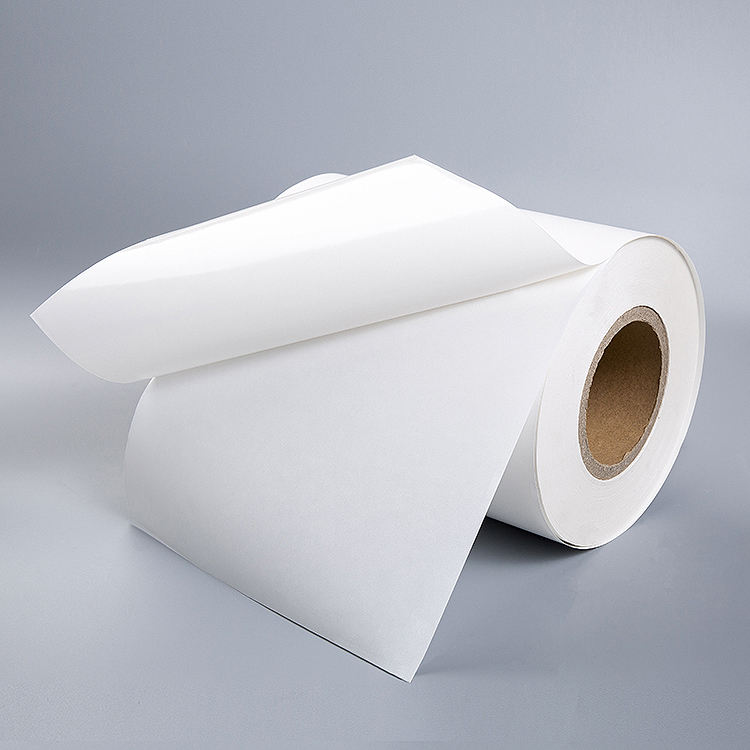What is Self-Adhesive Material?
In today's fast-paced industries, efficiency and convenience are key. This is where self-adhesive materials come in. Also known as pressure-sensitive materials, these products are designed to stick to surfaces without the need for additional glue or solvents. Simply apply light pressure, and they adhere instantly.
Because of their versatility, self-adhesive materials are widely used in packaging, labeling, logistics, electronics, pharmaceuticals, and more. Whether for branding, tracking shipments, or ensuring product safety, businesses rely on these materials for high performance and convenience.
Structure of Self-Adhesive Materials
Self-adhesive materials are composed of multiple layers, each playing a crucial role in functionality and durability.
- Face Material: This is the top layer that carries the printed design, barcode, or brand logo. The face material can be paper, plastic, fabric, or even metal, depending on the application. For example, high-end brands use premium paper labels for a luxury feel, while logistics companies prefer durable plastic labels to withstand rough handling.
- Adhesive Layer: The adhesive is what allows the material to stick. There are different types of adhesives, such as permanent, removable, and repositionable. Permanent adhesives create strong, long-lasting bonds, ideal for product labels and security seals. Removable adhesives are used when labels need to be peeled off without leaving residue, such as in retail pricing tags.
- Release Liner: This is the backing paper or film that protects the adhesive before use. Once peeled off, the adhesive layer is exposed, allowing for application. The liner can be made from siliconized paper or plastic film, ensuring easy removal. This multi-layered structure makes self-adhesive materials reliable and adaptable to various industrial needs.
Advantages of Self-Adhesive Materials
Businesses prefer self-adhesive materials for several reasons:
- Easy Application: No additional glue or equipment is needed, making the process faster and more efficient.
- Strong Adhesion: High-quality adhesives ensure that labels or stickers remain securely in place.
- Customizability: Available in various materials, colors, and finishes to match branding needs.
- Durability: Resistant to moisture, heat, and chemicals, depending on the chosen material.
- Cost-Effective: Reduces labor costs by eliminating the need for extra adhesive application.
These advantages make self-adhesive materials a smart investment for businesses aiming for efficiency and quality.
Applications of Self-Adhesive Materials
Self-adhesive materials are used in a wide range of industries, helping businesses streamline operations and enhance product presentation.
Here are some of the most common applications:
1. Product Labeling
In retail, food and beverage, and cosmetics, product labels play a crucial role in branding and information delivery.
Self-adhesive labels are used for:
- Brand Logos & Designs: Enhancing product appeal with eye-catching visuals.
- Ingredient & Safety Information: Meeting regulatory requirements in food and pharmaceutical industries.
- Barcodes & QR Codes: Enabling easy scanning and inventory tracking.
2. Logistics & Shipping
In the logistics sector, efficiency is everything.
Self-adhesive labels are essential for:
- Shipping Labels: Ensuring packages are correctly routed with tracking numbers.
- Warehouse Management: Labeling inventory for faster identification.
- Tamper-Proof Seals: Providing security for high-value shipments.
3. Electronics & Manufacturing
The electronics industry requires labels that withstand extreme conditions.
Self-adhesive materials are used for:
- Warning Labels: Indicating electrical hazards and product specifications.
- Serial Number Stickers: Helping with product tracking and warranties.
- Heat-Resistant Labels: Used on machinery and electronic devices.
4. Pharmaceuticals & Healthcare
The medical field relies on precise labeling for safety and compliance.
Self-adhesive materials help with:
- Medicine Packaging: Clearly labeling dosages and expiry dates.
- Hospital Equipment Tags: Ensuring proper identification and tracking.
- Tamper-Evident Labels: Protecting against unauthorized access to medications.
5. Apparel & Fashion
Even in the fashion industry, self-adhesive materials are widely used.
Examples include:
- Size & Care Labels: Providing essential garment information.
- Price Tags: Easily removable yet durable during display.
- Security Stickers: Helping prevent theft in retail stores.
6. Automotive Industry
Self-adhesive materials also play a role in vehicles and machinery.
Common applications include:
- Vinyl Wraps & Branding Stickers: Used for advertising and customization.
- Durable Warning Labels: Placed on engine parts and vehicle dashboards.
- Instructional Stickers: Found in car interiors for safety guidance.
Choosing the Right Self-Adhesive Material for Your Business
When selecting self-adhesive materials, businesses should consider:
- Application Environment: Will the material be exposed to heat, moisture, or chemicals?
- Adhesive Strength: Does the label need to be permanent or removable?
- Print Compatibility: Can it support high-quality printing for barcodes and branding?
- Durability Needs: How long should the label or sticker last?
By choosing the right self-adhesive material, businesses can improve efficiency, enhance branding, and ensure compliance with industry regulations.
Self-adhesive materials offer a simple yet powerful solution for a wide range of industries. From product labeling and logistics to electronics and healthcare, their versatility and ease of use make them indispensable for modern businesses.
For companies looking to improve efficiency, enhance branding, or streamline processes, investing in high-quality self-adhesive materials is a smart move. With the right selection, businesses can enjoy long-lasting durability, cost savings, and improved operational flow. Whether you're in manufacturing, retail, or pharmaceuticals, self-adhesive materials provide a reliable and convenient way to meet industry demands.






























